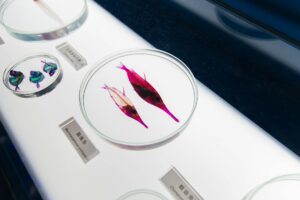
Understanding Orange Oil Treatment
When you’re exploring natural alternatives to conventional termite treatments, orange oil might be a solution that pops up. Understanding how it works and its effectiveness can help you determine whether it’s the right choice for your home.
What is Orange Oil?
Orange oil is a natural extract derived from orange peel, and its active ingredient is known as d-limonene. This substance has been recognized for its insecticidal properties. While it’s a low-toxicity option compared to traditional pesticides, it’s important to handle it with care as direct exposure may cause skin and eye irritation.
Effectiveness of Orange Oil
The effectiveness of orange oil as a termite treatment is a subject of much discussion. While it can be an effective contact insecticide, it has a limited window of effectiveness—typically between 3-7 days after direct contact with termites. The lack of residual effectiveness means that without thorough saturation of all termite galleries and regular reapplication, the likelihood of re-infestation is high. This makes it a less viable long-term solution compared to other treatments (Orkin).
It’s also essential to consider the type of termites when choosing orange oil. It tends to be more effective against drywood termites, which are typically easier to treat with surface applications. However, it’s not as effective or long-lasting against drywood termites as other termiticides. For subterranean termites, which create nests underground and can infiltrate homes from below, orange oil’s inability to penetrate deeply into the wood and soil makes it a less suitable option (The Bug Man, Family Handyman).
For comprehensive termite control, especially for protecting your home against drywood termites, dampwood termites, and formosan termites, it’s advisable to consult a reliable termite control company. They can provide a tailored approach to treatment and prevention based on the specific types of termites and the extent of the infestation, ensuring the long-term protection of your home.
Factors to Consider
When you’re considering orange oil termite treatment for your home, a few critical factors come into play. Understanding these elements will help ensure that you choose a treatment method that is suitable for your specific termite problem.
Residual Effectiveness
One aspect to consider with orange oil is its residual effectiveness. Orange oil is known to be effective against termites for a short period, typically only 3-7 days following direct contact (Orkin). It does not have long-lasting residual properties, meaning that it does not continue to kill termites over an extended time after application. In contrast, synthetic termiticides may offer a more durable barrier, protecting your structure for a longer period (Family Handyman).
| Treatment Type | Residual Effectiveness Period |
|---|---|
| Orange Oil | 3-7 days |
| Synthetic Termiticides | Months to years (varies by product) |
Due to its limited residual effectiveness, orange oil treatments may require frequent reapplication to maintain termite control. Without addressing the actual infestation site, re-infestation is likely. It’s important to weigh the need for repeated treatments against the benefits of potentially more persistent alternatives.
Termites Species Identification
Another factor to keep in mind is the species of termites you are dealing with. Orange oil can be somewhat effective in treating drywood termites, which live and nest inside the wood they infest. However, it may not be as effective against subterranean termites that reside in the soil and only come to the wood to feed (Western Exterminator).
Understanding the type of termite you are facing is crucial, as it determines the best treatment approach. Here are common termite species and their corresponding treatment considerations:
| Termite Species | Preferred Treatment Approach |
|---|---|
| Drywood Termites | Localized treatments like orange oil may be effective |
| Subterranean Termites | Soil treatments and bait systems are typically more effective |
| Formosan Termites | Aggressive treatment strategies are often required |
For comprehensive information on identifying different types of termites and their characteristics, visit our detailed guide. Whether you need insights on drywood termites elimination, dampwood termites control, or formosan termites eradication, proper species identification is the first step to effective treatment.
In conclusion, the effectiveness of orange oil termite treatment hinges on its short-lived impact and the specific termites you are targeting. Always consider these factors carefully and seek professional advice from a reliable termite control company to determine the most effective treatment strategy for your home.




